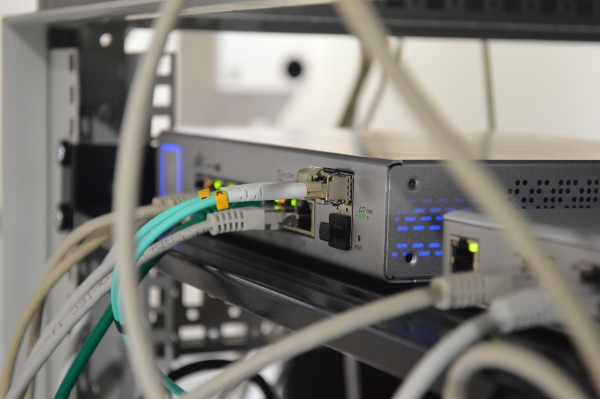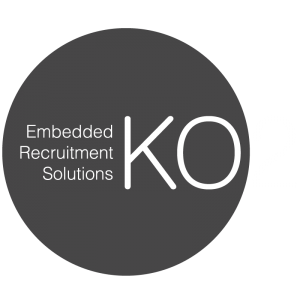Firmware engineers act as the bridge between device hardware and software. They combine their knowledge of device components and functionality with an understanding of software development and ensure that a wide range of products has the integrated firmware required to function as intended.
As quite a specialist role, the career path toward becoming a firmware engineer can seem unclear when you’re right at the start of your journey. To offer guidance and advice, this article explains what the role of a firmware engineer involves, how to become one and the kinds of skills that will benefit you when searching for a job.
What is Firmware Engineering?
Firmware is a kind of software that has been directly programmed into a piece of hardware. It ensures that the core functions of the hardware run to the manufacturer’s specifications on all kinds of devices like remotes, appliances and even smartphones.
Firmware engineering, therefore, is an engineering discipline that focuses on developing and implementing firmware software that allows hardware to run. It involves everything from writing the programs for specific hardware to testing and installing them on the devices themselves.
The prevalence of embedded systems in devices has meant that the majority of firmware engineering now involves embedded systems engineering as well.
What is Firmware Used For?
Firmware is used in a wide array of devices to get them to run properly. Installing software directly onto a piece of hardware means it immediately operates as it is supposed to, provides low-level hardware control, and can act as an intermediary between the hardware and more complex software that takes longer to start running.
This is very useful in commercial devices and appliances because it ensures that all products operate in the same way to the same standard, without having to install software onto a driver and then include this somewhere in the device.
Originally, firmware couldn’t really be changed or replaced, which was a benefit in some devices as it meant they couldn’t be tampered with, However, it is now possible to update firmware which helps hardware last for much longer.
Low-level and high-level firmware is used in a wide range of devices, including cameras, scanners, mobile phones, printers, wifi routers and network cards. Plenty of different industries use firmware as an integral part of the hardware they create and distribute, so there are many career opportunities if you know how to create this special kind of software.

What is a Firmware Engineer?
A firmware engineer is a type of engineer that focuses on the development of firmware for a range of electronic devices. They work with hardware to write specific programs that allow these products to perform their function, as well as creating firmware updates that fix bugs, enhance security and allow the device to keep functioning for longer.
Firmware engineers need to work closely with the hardware of the device they are developing to ensure that the program they write is compatible and that the device carries out its intended function. They may also need to consider the software that the device might run as well and how their firmware is going to work with this.
The role of a firmware engineer combines the skills and experience used in electrical engineering and software engineering. As we’ve already mentioned, a lot of the role also involves designing firmware that works on embedded systems.
What Does a Firmware Engineer Do?
Here are some of the typical responsibilities that a firmware engineer might have as part of their role:
- Responding to client briefs to design specialised software to meet the needs or demands of the company and coming up with firmware solutions
- Designing and developing firmware for specific pieces of hardware
- Implementing new firmware
- Running firmware tests, identifying issues or areas needing improvement, and finding solutions for these
- Responding to feedback and adapting development plans with this in mind
- Debugging developing firmware to ensure functionality
- Reviewing firmware code
- Working with hardware engineers to ensure smooth integration between the software and the device
- Maintaining existing firmware to ensure functionality and keep devices up-to-date
- Designing firmware updates and implementing these across relevant devices
- Monitoring existing firmware performance and troubleshooting if necessary
- Creating technical documentation to produce instructions for firmware operation
- Providing client or customer support
- Staying up to date with firmware advances and best practices to ensure high standards and innovation
How to Become a Firmware Engineer
As with many engineering roles, the path to becoming a firmware engineer begins with your education as far back as secondary school. In order to study the majority of university courses, you will need to have achieved at least a C grade or equivalent in both Maths and English Language.
Many engineering degrees or courses also require applicants to have studied a subject like Maths, Physics, Computer Science or Design Technology at A-Level, which will demonstrate that you have an aptitude for this kind of subject. You don’t have to study A-Levels to become an engineer though; you can also complete a Higher National Diploma or Foundation Course in a related subject to get the same kind of qualification.
If you decide to go to university, several different degrees can put you on the right path to becoming a firmware engineer. These include:
- Computer Science
- Computer Systems Engineering
- Electronic Engineering
- Electrical Engineering
- IT
- Mathematics
- Physics
Whilst it’s not necessary to become an engineer, many candidates in this industry choose to study for a four-year Master’s degree instead of just a three-year bachelor’s degree. This gives you the chance to specialise in a topic you’re really interested in in your final year and can improve your job prospects when it comes to finding your first graduate role.
Some engineering students also decide to study for a year of their degree in the industry to gain work experience and get an idea of the kind of engineering they’re most interested in. This can be a great way to boost your prospects as a firmware engineering candidate if you get a placement at a company that allows you to work on firmware development, and may also lead to an offer of a graduate job at the end of your degree.
Firmware engineering is a bit of a specialist role, so you may start your graduate engineering career in a software developer or engineer position. You might also work as a hardware or electronics engineer, gaining practical experience working with the kinds of devices that you’ll eventually be creating firmware for.
If you want to make yourself a more desirable candidate, it can be a good idea to study for and gain additional certifications in relevant engineering or IT skills in your spare time. This will build on the skills you gain from your job and also demonstrate your commitment to the subject and can help to make you more suitable for a wider range of roles.
Once you get a job as a firmware engineer, it’s possible to stay in this area of engineering for the rest of your career. You might work your way up the ranks and gain more responsibility, or you might become a specialist firmware engineer that works with particular types of hardware.

Types of Firmware Engineer
Here are some of the most common types of specialist firmware engineers and a brief description of what the role involves.
Embedded Firmware Engineer
Embedded systems and software are such a common part of many devices nowadays that plenty of standard firmware engineering roles will involve working with embedded systems. However, there are also specific embedded firmware engineer roles that require designing firmware for embedded systems and work exclusively with this kind of technology.
Firmware Development Engineer
A firmware development engineer is a role that focuses on just one part of the software development lifecycle. Whilst a typical firmware engineer will oversee the whole process from initial ideation to the final installation, a development engineer will just work on writing the code for the firmware and refining it through testing and debugging, and then hand it over to another engineer in charge of the next stage.
Firmware Security Engineer
A firmware security engineer works on developing methods of keeping firmware secure and safe from any kind of outside intervention. They ensure that the code for firmware is written securely and develop updates that ensure existing firmware remains secure and isn’t prone to any kind of attack.
Firmware Design Engineer
A firmware design engineer is another example of a role that just focuses on one area of the software development life cycle. These engineers will respond to briefs for new device firmware and then draw up initial plans and designs, but aren’t often involved in the development and refinement of the firmware after it has been initially created.
Firmware Test Engineer
Similarly, a firmware test engineer just focuses on the testing and development stage of creating a new piece of firmware. They will use their skills to debug, troubleshoot and refine firmware so that it runs efficiently and be responsible for ensuring that it passes necessary standard and functionality tests.
FPGA Firmware Engineer
An FPGA firmware engineer will solely design and develop firmware for field-programmable gate array integrated circuits. This allows it to function before a user customises or configures it after purchase, and is a very specialist firmware engineering role.
The Top 5 Firmware Engineer Skills
C or C++ Programming
Whilst they’re not exclusively the only languages used to create firmware programs, C and C++ are definitely the most common that programmers use. A lot of firmware engineering roles will require you to be confident in writing code in either C or C++, so this is a skill that’s definitely worth investing time into developing.
Hardware Experience
Since firmware engineers act as the intermediary between a device’s hardware and software, experience working with and designing hardware is another of the most valuable firmware engineer skills. You will need to understand the best kinds of firmware for various kinds of hardware as well as being familiar with typical errors and bugs, so at the very least you should be comfortable working with hardware when searching for roles in this industry sector.
Software Development
Whilst firmware and software are two very different things, having software development skills will make your job as a firmware engineer much easier. The two things have different purposes and function in different ways, but the basis of writing code and creating programs is the same.
Embedded Firmware Design
Plenty of firmware works on embedded systems, so having experience working with this kind of technology is very useful. It won’t be relevant for every project, but more and more devices are now incorporating embedded systems so you are very likely to need an understanding of embedded systems engineering at some point in your career.
Organisation and Documentation
Finally, two of the most important soft skills you will need in firmware engineer jobs are organisation and documentation. As an engineer, you will need to keep track of your progress, meet deadlines and ensure that the work you produce is accurate and fit for purpose, whilst also being able to clearly document everything you do and present this in a way that other people can understand.

Summary
Firmware engineers are required across a wide range of industries, so it’s a great role to work towards if you want to get the chance to work with lots of different people on a variety of kinds of projects. Becoming a firmware engineer is a career path that will require lots of work, but it’s also a brilliant option for those who want to combine aspects of both software development and electronics engineering.
If you’re a firmware engineering candidate looking for a role working with embedded systems, KO2 is a specialist recruiter in this industry sector that can help to find you your perfect job opportunity. Browse our available positions here or get in touch and find out more about how we can help.







